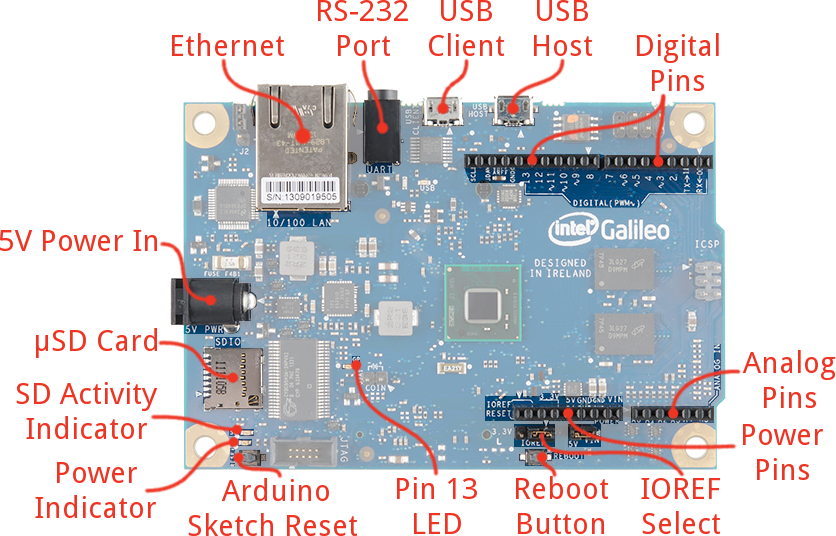At around $60+ per board, it is more expensive than an Arduino board, although for those who prefer a large brand with more features, it might be worth looking at. Certainly, there is a price to pay for that.
In this article, we will take a closer look at this Intel / Arduino colaboration and how it might find its way into a Maker's project.
As a general consumer, I do appreciate brand. It usually means there are no surprises and you generally get the quality and value one might expect from a specific brand line. That said, brand doesn't always mean quality or value, as big companies are certainly capable of making mistakes and sub-par products.
Intel has made both a bold, and a smart move, partnering with the Arduino brand and a quickly developing and likely hugely profitable market. This could also be a smart move for Arduino. While Arduino is a very capable board, it is not a computer. What this move does for Arduino, can help it compete with the Raspberry Pi market.
While it is significantly more than the Pi's entry price of $35, the Galileo board could be arguably a more robust and capable board. Of course, one's mileage may vary, and when capability comparing on a project, a Galileo might be huge overkill for a project that a Pi would be very capable of handling.
As Arduino indicates, "It’s the first board based on Intel® architecture designed to be hardware and software pin-compatible with Arduino shields designed for the Uno R3". This means that there is a symbiotic relationship between the
Galileo and Arduino technologies, allowing for much more robust applications that either of the two could provide directly.
With the introduction of the Galileo and partnering with Arduino, Intel has a very clear strategy and is already actively pursuing the maker community. And the maker community is responding in kind, using the Galileo for maker projects and writing plenty of articles and other information, promoting Galileo and helping others make projects with the board.
Regardless of any concern about companies like Intel taking over the market, this really is great news for the Maker and DIY industries. Some people simply wouldn't put in the effort to work with an unknown brand and may actually start working with the Intel Galileo board. The more people doing interesting things, the more people will become interested in, and perhaps begin to participate in Open Source projects.
Probably the most difficult down side is, the Galileo board is not open source. This might put a damper on those in the open source hardware industry, at the very least by taking focus away from them. But then again, perhaps this will motivate the OSHW industry to step up and bring to market processors and open source boards that can compete with these closed source products.
Whether you would prefer a brand product for your project or would rather work with an off brand board, happy making!

No comments:
Post a Comment